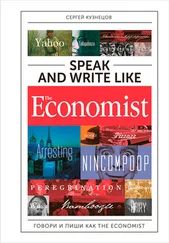Fang moved to town to live with an aunt. At Liling’s, I’d ask her to let me look at this old book with pictures of national sites, black-and-white photos of waterfalls clouded in mist, giant sand dunes, Beijing’s temples, the Great Wall. All the places I wanted to go. “Turn the pages slowly,” she would say, watching me. After Liling passed the high school entrance test, she said I could have the book, she didn’t need it anymore. But when I looked at the pictures at home they no longer inspired me.
One afternoon at the end of the summer, when I was fifteen, I was doing the laundry. Couldn’t wait any longer for the weather to cool, and the clothes needed washing, though it was almost pointless to wash them in such humidity. I filled the plastic basins, wrung out the clothes and strung them, one by one, from the line, Yi Ba’s underpants and my T-shirts, flapping squares of gray, red, and white. I heard a small squeak and looked up, and there was the neighbor boy, Haifeng, taller than when I’d seen him last, staring at me from atop a bicycle.
“Peilan,” he said. “Want a ride?”
Yi Ba called him the Wimpy Li Boy. “Soft like a pillow, that one,” he said, when we overheard Haifeng’s parents ripping him a new one for failing the high school entrance test. I kind of felt bad for Haifeng. Plenty of kids in Minjiang wouldn’t make it to grade nine. We all had as much of a chance of going to college and transferring out of peasant class as flying to the goddamn moon.
Haifeng’s dark hair stuck to his face in the summer heat. He had a widow’s peak that made him look older than he was. His limbs were gangly, but there were ropy muscles on his calves and forearms, tightly balled and hidden. Surprise!
It wasn’t like I had anything important to do. I climbed on the bike’s rack, balancing sideways, batting mosquitoes from my face, the tall grass tickling my feet. Haifeng pedaled, the sky gaping and bright, the wheels squeaking as we rolled through the fields. I sniffed him; he smelled like salt.
“Let’s go to the river,” I said. We were already on our way.
The first and second days we went to the river, we talked about our families. I told Haifeng my father was pissed I hadn’t bothered with the high school entrance test, though Yi Ba wouldn’t say so. Haifeng said his parents were angry, but he had been relieved.
“I hate school.” It felt great to say it aloud.
“Me, too,” he said. “I’m helping my father out with the crop planting. That’ll be my land someday.”
Haifeng said he admired me for standing up to Teacher Wu. “You were so brave. You didn’t even cry when you got paddled.”
“It didn’t hurt.” I couldn’t remember Haifeng being paddled at school. He hadn’t been a troublemaker, but he hadn’t been a good student either. Actually, I could barely remember him in class. “Aren’t you friends with Ru?” I asked, though I had no memory of seeing them together. “What’s he doing this summer?”
“I don’t know.”
“Who are your friends, then?”
“I was friends with Guang in grade four, but his family moved away.”
The third day he came by, I said, “Let’s do something different.”
I leaned over and kissed him. He didn’t say anything.
“Did you like it?” I wasn’t sure if I did. His lips had been a little sweaty, and I’d been hoping a kiss would spark a more significant feeling, like the frenzied mouth mushing I had seen on the shows I’d watched on Liling’s parents’ TV.
We tried again. Haifeng’s face loomed over me, his features taking on a cartoonish quality. I closed my eyes and tried to channel the excitement of the TV actors. Still, no frenzy.
We pressed closer and I began to feel something. His mouth moved against mine; strands of my hair slipped between his lips. Now he was the one who seemed frenzied, and I had to break away, wipe the spit from my face.
He ran to my house each day after he finished work with his father. I liked the attention, but didn’t have the same excitement about him. Haifeng had nice muscles, but he was too obvious and appreciative. There were days I turned him away, but by the time I finished my chores, the afternoon had barely started and I wanted someone to talk to. When Haifeng returned the next day, I’d hop on his bicycle without a word.
Lying by the river, I watched the sky, the drifting clouds, and saw myself launching into the sun. No other girls would do this; I was unlike all other girls. “You’re so pretty,” Haifeng said. He told me how much me liked my mouth, how my lips were shaped like the tops of two halved hearts. He even liked the mole on the side of my neck.
One morning, Haifeng’s mother cornered me in the alley and grabbed me by the wrist. “Stay away from my son,” she said.
I pictured Mrs. Li squatting over a pit toilet and laughed. She took my earlobe and twisted it, and tears, sudden and humiliating, sprang into my eyes.
When he found out his mother had spoken to me, Haifeng was livid. “She had no right. No right!” He paced the riverbank and stomped on the weeds. He’d gotten a haircut, which made it clear how much his ears stuck out from his face.
“It’s okay.” I missed being able to go to the river by myself, but the one time I told Haifeng I wanted to do that, just for one day, he had stalked away with a hurt look on his face, and I hadn’t even enjoyed being alone.
“I’ll see you whenever I want. She can’t tell us what to do. One day, you could be her daughter-in-law, and then what will she say?”
I sat up and straightened my clothes. “I need to get home.” He kissed me again, attempted to pry my mouth open with his tongue, but I broke away.
I was always home before Yi Ba returned from the boat, made sure Haifeng and I went to the part of the riverbank that was hidden behind trees and grass. But if my father caught us, or if Haifeng’s mother told him that his daughter was messing around with her son, he might put a stop to it, or even send me away.
IT STARTED AS A rumor: the city had stopped deporting rural migrants. Villagers couldn’t get permanent urban hukou, but they could buy temporary resident permits and find better jobs than fishing and farming. Two older boys on 5 Alley left for Fuzhou, the provincial capital, and came home bragging about six-story buildings and women in hot pants. Then more boys left, finding jobs in the factories there. No girls from the village had yet to go to the city, but I knew that leaving in order to make money was less suspect than leaving to become a new person. I’d never been to Fuzhou, even if it was only a few hours away, and I wasn’t sure what working in a factory would be like, only that I would make money, and I wouldn’t have to sit through silent dinners with Yi Ba, watching his mouth as it grimly worked on his food.
When I asked Haifeng if he ever wanted to move to the city, he looked confused, then alarmed. “No, I like it here.”
I told him I was thinking of going.
“To Fuzhou? Only boys can go.”
At the produce market, the parents of my former classmates talked about how their sons were sending home two hundred fifty yuan a month. One woman, whose son was still in school, said to the others, “Aren’t you worried with your sons alone in a big city? There are all sorts of girls living in the dormitories and no supervision.”
I ran home and rushed through the rest of my chores. At dinner, I announced, “I’m going to the city to work in a factory.”
“Only boys work in factories,” Yi Ba said.
“They’re hiring girls, too. At the factory where Mrs. Jia’s son works. They have separate dormitories full of girls and they make three hundred yuan a month.”
INSIDE THE FUZHOU GARMENT Export Corporation, the rooms hummed with the motors of hundreds of sewing machines and the windows steamed with the blistering heat of flatbed irons. I was a snipper. On the south side of the fourth floor, I sat at a long table and snipped threads all day from piles of blue jeans. My hands cramped, but I worked hard, even if it was so hot I felt like vegetables frying in a pan. Sweat dripped into the fabric, no time to wipe it off. I couldn’t put my scissors down for a second, to notice the way the sun streamed in through the windows, or marvel at how there were so many different shades of blue in a single square of denim. Those jeans kept on coming and if I was a second late, the girls down the line would curse at me and Foreman Tung would dock my pay.
Читать дальше











